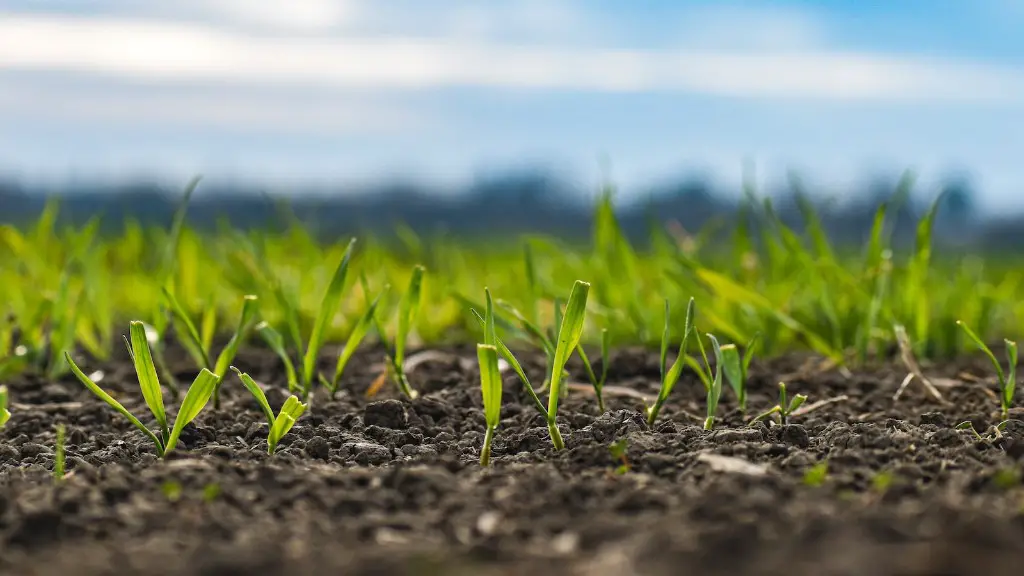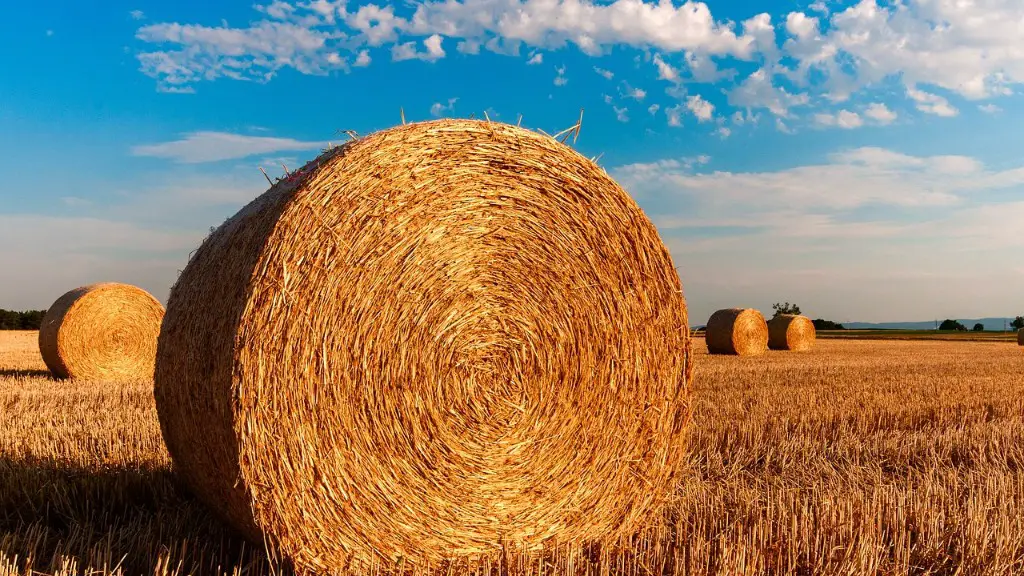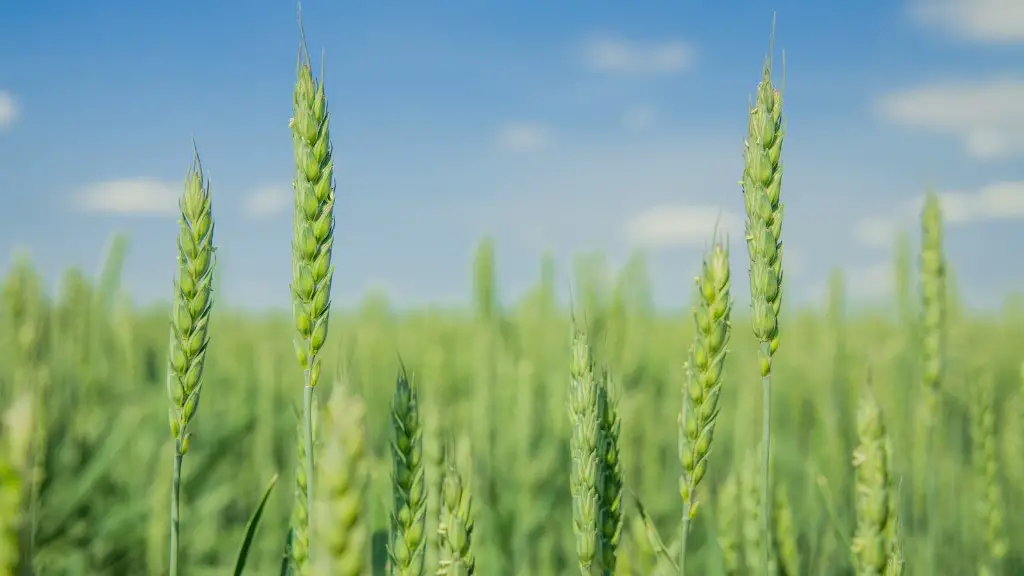Soil science is the study of soil as a natural resource on the surface of the earth. It is one of the earth sciences that deals with the pedosphere, which is the outermost layer of the earth that is composed of soil. Soil science covers a wide range of topics including the formation, classification, and mapping of soils; the physical, chemical, biological, and fertility properties of soils; and the ways in which soils support plant growth or other land uses.
Soil science is important in agriculture because soil is the medium in which crops are grown. A knowledge of soil science is essential for successful crop production, as it helps farmers to select the right type of soil for their crops, understand how to manage and improve the fertility of their soil, and how to prevent and control soil problems such as erosion and soil contamination.
The Importance of Soil Science in Agriculture
Soil science is the study of soil as a natural resource on the earth’s surface. It is a branch of earth science that deals with the physical, chemical, biological, and environmental properties of soils. Soil science has many applications in agriculture, forestry, civil engineering, and environmental engineering.
Soil provides the vital link between the land surface and the underlying rocks. It is the uppermost layer of the earth’s crust and is comprised of weathered rocks, minerals, organic matter, water, and air. Soils support plant growth and are crucial for food production. They also play an important role in the water cycle, the storage of carbon, and the filtration of contaminants.
Agricultural productivity depends on the physical, chemical, and biological properties of soils. Soil scientists work to understand these properties and how they interact with each other. This knowledge is used to develop management practices that will improve soil health and productivity.
Soil science is important for sustainable agriculture. Management practices that are based on a sound understanding of soil science can help to conserve soil resources and protect the environment.
What is the importance of soil studies?
A soil survey is a detailed report of the soil conditions in a specific area. It can be used to plan the development of new lands or to evaluate the conversion of land to new uses. Soil surveys also provide insight into the kind and intensity of land management that will be needed.
Soil science is a vital field of study that helps us understand the properties and formation of soils, as well as their impact on the environment and our ability to use them. By understanding soil science, we can develop better methods of managing and using soils for the benefit of both people and the planet.
What are 5 reasons why soil is important
Healthy soils are essential for a variety of reasons. They support healthy plant growth, which in turn provides food and oxygen for humans and other animals. They also help to filter water, regulating the Earth’s climate and storing more carbon than all of the world’s forests combined.
Soil science is the study of natural resource on the Earth surface called soil which includes soil classification, formation and mapping along with chemical, biological, physical and fertility properties of soils in relation to soil management.
Soil science is important for understanding the properties and behavior of soils. It is also necessary for developing methods of soil conservation and for improving the productivity of soils.
What are the 5 fields of soil science?
Soil fertility refers to the ability of soil to sustain plant growth. It is a complex attribute that includes several chemical, physical, and biological properties.
Soil microorganisms play a critical role in soil fertility by breaking down organic matter and releasing nutrients that plants can use. Soil biochemistry is important for understanding how these processes work.
Soil chemistry is concerned with the nature and composition of soils. It includes the study of soil minerals and their interaction with plant roots and soil organisms.
Soil conservation is important for preventing soil degradation and maintaining soil productivity. Management practices such as crop rotation, cover crops, and proper tillage can help conserve soil.
Soil science is the study of soil as a natural body that is created by natural forces on the surface of the earth on which plants grow. It is a branch of agriculture that deals with the physical, chemical, and biological properties of soils, and their management for various purposes.
Soil science has many sub-disciplines, including pedology, edaphology, soil chemistry, soil physics, and soil microbiology. Each of these sub-disciplines has its own focus and area of study. For example, pedology is concerned with the formation, classification, and description of soils, while edaphology deals with the relationship between soils and plant growth.
Soil science is a vital branch of agriculture because of its direct influence on plant growth and nutrient supply. The physical and chemical properties of soils determine the amount of water and nutrients that are available to plants, and how well plants can grow in them. The type of soil also affects the type of plants that can be grown in it.
Soil science is therefore essential for the successful management of agricultural land and for the production of food, fibre, and other crops. It is also important for the conservation of natural resources and the protection of the environment.
What soil is most important in agriculture?
Loamy-textured soils are commonly described as medium textured with functionally-equal contributions of sand, silt, and clay. These medium-textured soils are often considered ideal for agriculture as they are easily cultivated by farmers and can be highly productive for crop growth. Loamy soils typically have good drainage and water retention properties, making them ideal for growing crops.
The basic components of soil are minerals, organic matter, water and air. The typical soil consists of approximately 45% mineral, 5% organic matter, 20-30% water, and 20-30% air. Soil minerals are derived from the breakdown of rocks and minerals by physical and chemical weathering processes. Soil organic matter is derived from the decomposition of plant and animal residues. Soil water is held in the pores of the soil, and soil air is the space between the soil particles.
What are 3 important soil functions
The soil acts as a natural filter for water, trapping impurities and pollutants and storing it safely away. This process is crucial for clean water supplies, as it protects groundwater reserves from contamination.
The soil is also vital for transforming nutrients and minerals into forms that plants can use. This process, known as mineralisation, is essential for plant growth and healthy ecosystems.
Water storage in the soil is a vital part of the water cycle, and is essential for sustaining life on Earth.
Soil science is a very important aspect of understanding how natural and artificial systems work. Soil scientists work to understand the classification, physical properties, chemistry, and fertility of all kinds of soils. This work requires a strong understanding of ecology, microbiology, chemistry, and physics.
What are the 2 branches of soil science?
Edaphology is the study of how soil influences living things, especially plants. It involves the study of how soil affects the way human nature uses the land for growing plants. Pedology, on the other hand, involves the study of soil classification and soil morphology.
Soil scientists are experts in the study of soil, its composition, fertility, and other properties. They use their knowledge to help farmers, gardeners, and other land managers understand and improve the quality of their soils. Soil scientists may also work in environmental consulting, providing advice on how to clean up contaminated sites or restore damaged ecosystems.
What is study of soil science called
Pedology is the study of soils in their natural setting and has been equated with the study of soil genesis and soil classification The people who study soils in these ways are pedologists.
Agriculture is the process of producing food, feed, fiber and many other desired products by the cultivation of certain plants and the raising of domesticated animals.
It is estimated that agriculture accounts for 40 percent of the world’s land usage and 30 percent of the world’s energy use. The sector employs almost one billion people worldwide, making it one of the most important economic activities on the planet.
Despite its importance, agriculture is often taken for granted. Here are 10 reasons why agriculture is important:
1. It’s the main source of raw materials: Raw materials are the building blocks of our economy. Without them, we would not be able to produce the goods and services that we rely on.
2. It’s important to international trade: International trade is a vital part of the global economy. Agriculture is a major component of this trade, with food and other agricultural products being traded all over the world.
3. It plays a big role in a nation’s revenue: Agriculture is a major source of revenue for many countries. In fact, it is estimated that agriculture accounts for 10 percent of the world’s GDP.
4. It provides employment: Agriculture provides employment for millions of people around the world. In fact
What are soil issues in agriculture?
Soil compaction, topsoil removal, and erosion are three key soil problems. Evaluating your soil and making necessary adjustments and improvements prior to planting will save you time and money and result in a healthier landscape.
Soils are the environment in which seeds grow They provide heat, nutrients, and water that are available for use to nurture plants to maturity These plants form together with other plants and organisms to create ecosystems.
Ecosystems are made up of diverse species of plants and animals that interact with one another and their physical environment to create a balanced system. Soils play a vital role in ecosystems by providing the foundation for plant life.
How does soil type affect farming
Soil pH is a measure of the acidity or alkalinity of a soil. It is important to know the optimum pH for the plants to be grown, as it directly affects the availability of the essential nutrients to plants. Soil pH also affects the adaptability of plants in a given soil. Most agricultural plants prefer a slightly acidic pH of 6.4.
Healthy soils are essential to the success of your plants. Good soil provides the roots with the nutrients and water they need to thrive, and good aeration helps keep the roots healthy. If your soil is lacking in nutrients or structure, we recommend adding compost as this will help add organic matter into your soils.
Final Words
Soil science is important in agriculture because it helps farmers to understand how different soils affect crop growth. It also helps farmers to develop and implement management practices that can improve soil quality and productivity.
Soil science is a branch of agriculture that deals with the study of soil. It is important to agriculture because soil is the main medium in which plants grow. Without healthy soil, agricultural production would be greatly reduced. Soil scientists work to understand how soil forms, how it behaves, and how it can be managed to best meet the needs of crops and other plants. They also develop methods for improving soil fertility, for controlling erosion, and for restoring damaged soils.





